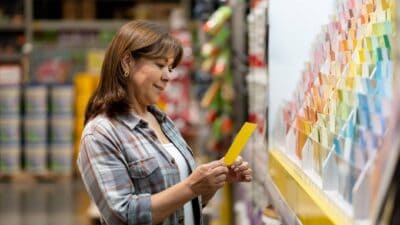The Australian retail sector showed some momentum coming into the quarter ended 30 September 2020. Retail turnover increased marginally year on year in each of June and July. But Victorian COVID-19 shutdowns have taken a toll, with turnover falling by 4% in August. The impacts of changing consumer spending patterns are uneven, and ASX retailers are facing a volatile environment. As Deloitte reports, they must cope with monthly swings in spending and gulfs in performance by sector and across states.
Demand for recreational goods, electronic and electrical goods, and hardware and garden supplies have surged. According to Deloitte, these categories posted gains of more than 30% in July compared to pre-COVID levels. Retailers with a strong digital presence have also benefitted from the shift to online shopping. But spending levels vary significantly across states. While Western Australia and Queensland have benefitted from eased restrictions, retailers in Victoria are only just looking to reopen physical stores after long closures.
With that in mind, let's take a look at how ASX retail shares performed in the last quarter.
Kogan.com Ltd (ASX: KGN)
Kogan has seen sales soar as a result of the pandemic. The online-only retailer saw August sales grow 117%, year-on-year, with profit up 165% over the same period. Active customers grew to 2,461,000 at the end of August. This represents an increase of 152,000 for the month, the largest monthly increase in Kogan's history. The Kogan share price has likewise climbed, almost doubling during the most recent quarter.
Kogan's August results come on top of an impressive set of full-year numbers. FY20 sales were up 39.3% to $768.9 million. Profits climbed 55.9% to $26.8 million. Repeat orders are rapidly accelerating as customers access loyalty benefits and the breadth of Kogan's offering. Recently acquired customers are expected to contribute to future sales growth as they become repeat customers. A significant investment in Kogan's platform and marketing activities has delivered an immediate impact on customer growth, which the company expects to have long-term benefits.
Kogan finished the year with a cash balance of $146.7 million and an undrawn bank debt facility. This leaves it well positioned to grow its exclusive brands business and scale Kogan Marketplace (which allows third parties to sell products via Kogan's platform). Kogan also plans to continue to invest in new verticals including Kogan Internet, Kogan Mobile, Kogan Money, and Kogan Travel. The company will provide its next business update at its annual general meeting on 20 November 2020.
JB Hi-Fi Limited (ASX: JBH)
Store closures have had little impact on JB Hi-Fi's sales this year, which soared 11.6% to $7.92 billion in FY20. The electronics retailer had a strong year in the most challenging of times, with profits jumping 33% to $332.7 million. JB Hi-Fi played a vital role in supplying Australians with the tools they needed to work, study, and entertain themselves at home, despite operations being impacted by COVID-19. The JB Hi-Fi share price has followed sales upward, climbing more than 26% over the last quarter.
Australian JB Hi-Fi sales were up 12.5% to $5.32 billion in FY20. Sales momentum was strong and increased toward the end of the financial year. Online sales grew 56.6% to $404 million or 7.6% of total sales. Increased sales combined with cost controls more than offset additional operating costs associated with ensuring safety during the pandemic.
The Good Guys business grew sales by 11.2% to $2.39 billion, with sales accelerating in the fourth quarter as customers upgraded home appliances and entertainment options. Online sales grew 33% to $174.2 million or 7.3% of total sales. In New Zealand, however, JB Hi-Fi sales were down 5.7% to NZ$222.8 million. Sales in the final quarter were materially impacted by New Zealand government restrictions. Positively, online sales grew 53.3% to NZ$20.4 million, or 9.1% of all sales. A $24 million impairment was recorded against the New Zealand assets in light of past performance and ongoing uncertainty arising from the current economic environment.
Temple & Webster Group Ltd (ASX: TPW)
Temple & Webster has reported a strong start to FY21, with revenue to 19 October 2020 up 138% on the prior corresponding period. First quarter earnings before interest, taxes, depreciation and amortisation (EBITDA) were $8.6 million – which is greater than the retailer's full-year FY20 EBITDA. October revenue growth is still in excess of 100% as the retail sector enters its peak trading months. The Temple & Webster share price nearly doubled in the quarter ended 30 September, but took a dive in October with reported growth failing to meet market expectations.
The Temple & Webster share price has risen strongly this year as the online-only furniture retailer leverages the accelerated shift to digital. This saw Temple & Webster added to the S&P/ASX 300 (ASX: XKO) in the September quarter rebalance. In July the company, which is the largest in Australia's e-commerce furniture and homewares market, announced a strong set of full year results driven by a growing online audience. Active customer numbers crossed the 500,000 milestone in that month, meaning some half a million Australian homes contain something from Temple & Webster.
In FY20, Temple & Webster increased revenue by 74% to $176 million. EBITDA more than quadrupled, coming in at $8.5 million versus $1.5 million in FY19. This resulted in a profit after tax of $13.9 million (including an income tax benefit of $5.9 million). The retailer ended the financial year with cash of $38.1 million and no debt. This strong balance sheet will protect the company in a down-side scenario, but also allow it to pursue strategic opportunities as they arise.









